How Failing Keeps Your Magick Real.
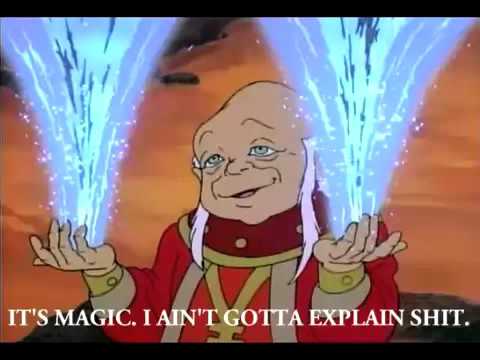
(...) reason is a lie; for there is a factor infinite & unknown; & all their words are skew-wise.
Magicians, occultists, witches, whatever we want to call ourselves, love getting results. We do so, not just because they improve our lives, but also because they validate our methods, at least to ourselves. That’s the hard truth about magick. We might all see it work wonders in our life, but none of us has the answer as to exactly how. This makes magick impossible to scrutinise scientifically. We can never produce results good enough to convince a skeptic. For some, that’s good enough a reason to dismiss it, as nothing more than superstition and dogma. For others, the unknown quality of this process awakens fear, be it of madness, or of the devil. We find ourselves in a small but growing group of people who prefer to embrace it with an open mind and learn its workings.
I love practising magick. It’s the main thing I do. It might not be my day job yet, but I can easily weave it into my everyday life without making it visible to others. That is mostly because magick happens predominantly in the mind. By that, I do not mean that it isn’t real. Like, I said previously, no one really knows, how it works. I mean that we are only aware of the process that happens in our minds when we do magick and that’s what we rely upon. We know what actions we took and what mental states they produced, and finally we know the intention. We can be aware of perceived bodily sensations, and experienced energies. We record this in our diaries for future reference, but after the rite is performed, we know nothing about its course until results begin manifesting.
This can be mildly surprising, or truly exciting, depending on the intention that seems to be fulfilling itself. In addition to that, it’s a confirmation that we did something right, that is if you believe in magick. From a psychological perspective, we are fooling ourselves through confirmation bias. In other words, we are failing and convincing ourselves otherwise, to boost our egos, and gain from it. Despite many years of successful practice , I still can not dispute that. There is a lot of truth in it. Only in my eyes, ‘fooling yourself’ that you can do something plays a role in any form of learning.
It’s no coincidence that the deities of magick are often the same as that of writing, trade, trickery and misfits. They are famous for making things (up). It seems to be a part of the trade that gives magick its bad reputation. Truly, the magician fools themselves most of the time, and only fools others once in a while, and mostly by accident. Magickal practice could be compared, if one wishes to look at it diminutively, as powerful personalised brainwashing.
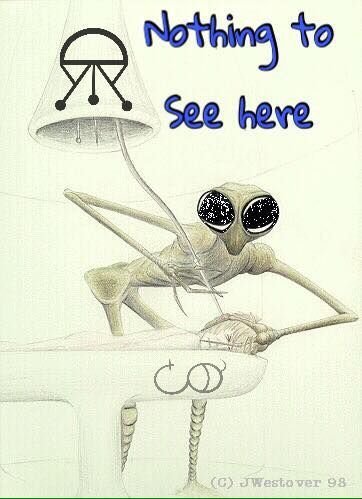
When we look at most of human knowledge, at its foundations we find precisely the above mentioned pitfalls. Confirmation bias, fakery, overgrown egos and a lot of failure. Magick isn’t any different. We expect it to work powerfully all the time, to have a consistency that we can depend on, to be predictable. We want to see results out of the Bible or the movies. In reality we often get no results at all. That can be a very difficult disappointment. Not only our dream didn’t come true, we probably fucked up, and we have no idea how or why.
I am sure that every practising occultist out there, knows the pain of trying to go through their magick diary, to figure out what went wrong. Since we do not know how magick works, we rely on outdated tools, such as tables of correspondences, created by alchemists when science and magick were still the same discipline. Other resources we have include accounts of similar practices by other magicians. It’s good to compare notes with others, even if everyone reaches different conclusions. Ultimately anyone’s guess is just as good.
Failures often leave us empty handed, confused and unsure how to progress. Every time we fail, the inner skeptic kicks in, telling us it’s all nonsense, that we are wasting our time. We feel defeated, silly and we doubt ourselves. Sometimes, we just want to give it up and ‘get ourselves a real life’. It is in those moments where we should truly appreciate the human element of it.
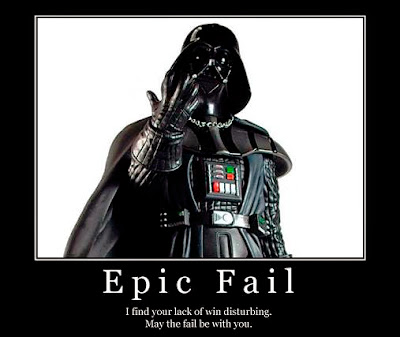
Think for a second, about all of your achievements and how many of them worked out the first time you tried for it. When you learn a new skill, you do not get it right every time, no one does. It’s like expecting a driver, to be able to pass driving licence tests, every time they drive. People commonly believe that magick works miracles and pulls bunnies out of hats but it doesn’t. It’s much more down to earth. It requires practice, study and honesty with yourself. If you can not put all three of those, you might get occasional results, but that’s about it. No flying saucers and fairies.
We need to look honestly on how many hours a week we spend on magick and compare it to the skills we mastered in everyday life. If we compare them to your main occupation or favourite sport, you will often see that not many of us can afford to spend long hours on magick. We all have other responsibilities we need to fulfil. To expect us all to perform miracles like King Solomon or Jesus is completely unrealistic. Even the greatest masters make mistakes and have bad days. When you learn something new, you begin by failing over and over and over again. Many people get discouraged and quit at this stage. It’s natural.
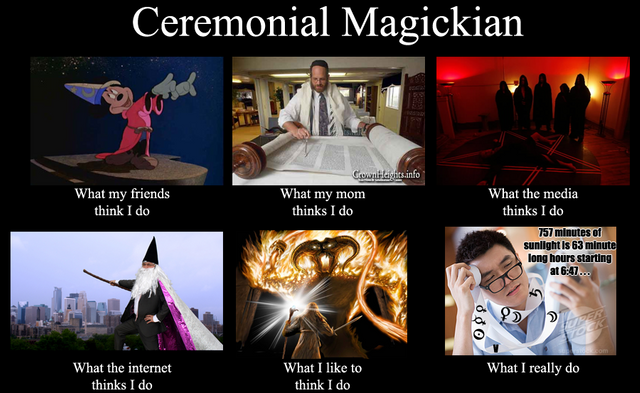
Unfortunately, due to a somewhat naive understanding of magick, people expect that a sigil or a few gestures and words should somehow work, in and of themselves. We, as a culture, have a misconception that magick is like a leprechaun that can grant you wishes asking nothing in return. Even if that was true, we still wouldn’t see supernatural results from doing a sigil. We would rather see a subtle change in the circumstance.
If there exists some other realm, full of pixies and demons, to enter in communication with us, or to affect our life, they would have to be able to manifest in the medium of our physical world. Their manifestation therefore, would have a mundane and not supernatural quality. Magick often manifests by shifting the odds, and allowing an event to unfold in ever so slightly different ways. If we expect something totally ‘out there’ to happen, a practical and tangible solution to what we have asked for, might be overlooked.
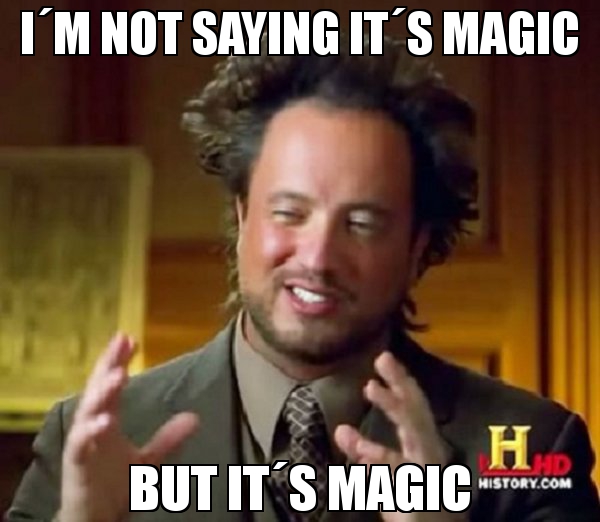
Let me illustrate with an example. You made a sigil to improve your finances and hoped to win a lottery. Then you loose and feel disappointment, so you forget all about it. Later someone tells you of an investment opportunity. You never invested before and you don’t know anything about it, so you take the easy way out and give it a pass. If you decided to learn more about the investment and took the opportunity, the chances are that you would have returned a nice profit. It was unrealistic expectations and a lack of confidence that held you back, not your inability to do magick, but you will never know that, should you fail to notice and recognise the opportunity as result of your magick. More importantly, to do so, you have to look at yourself critically and with true honesty. You need to see your own shortcomings and acknowledge your weak points. That’s not a comfortable territory for any self deluded, fluffy bunny.
When we fail in our magick, we do what everyone else learning new thing does, we pick ourselves up and we try again. Eventually we get results. Perhaps they are just a confirmation bias, or perhaps, like with many other skills, we are getting better at it.
You always hear the materialist argument, that magick can be easier explained through mundane circumstances. This suppose to somehow take away its validity. It’s a double bind. If we fail we prove magick doesn’t exist, if we succeed, but the result is not supernatural, which it can not be, we prove our own bias. As a result we doubt magick when we win, and when we loose.

Doubt can be good for self reflection, but it doesn’t get things done. With so much uncertainty and second guessing ourselves, I am surprised we are getting any results at all! All things considered, failure is quite a realistic and probable outcome.
Magick happens when we move beyond our preconceived notions of reality. Perhaps it is so, because only then, we are able to see all of the opportunities in life. We see what isn’t real but could be and we have the confidence to bring it into manifestation.
Disclaimer: All the memes in this blog are sourced from a google image search on the following phrases: magick/magic +is real, +fail, +result, +meme, with an exception of nothing to see here, shared by @OpIntruder. I did not create them. The writing is my own.
Thank you for this interesting post! Magic is surrounding me all the time when I'm open enough to see, I'm still learning, everyday, the density of the physical plane is quite tricky to work on and requires so much practice.. your post reminds me of the tarot de marseille card the Bateleur, who can do real magic with his hat in an infinity shape..and also he's displayed like someone who can trick us and pull a bunny out of his hat.. which one do we choose? the fake magician or the divine one? ;) thank you again for your post! blessings
You're welcome! I'm glad you enjoyed reading it. It's great to connect to other magicians and share thoughts.
I love the Magician, or in this instance, Le Bateleur. :)
yes glad to connect with you as well! looking forward to your new posts! have a beautiful day
'What we think about we bring about', is the simplest definition for magic i've found. Although ritual and tools etc, helps us to focus intention, magic can be practiced all day in the mind if we choose to.
good post :)
Thanks @the-phillosopher . It's a good definition. :)